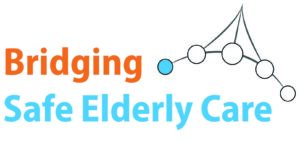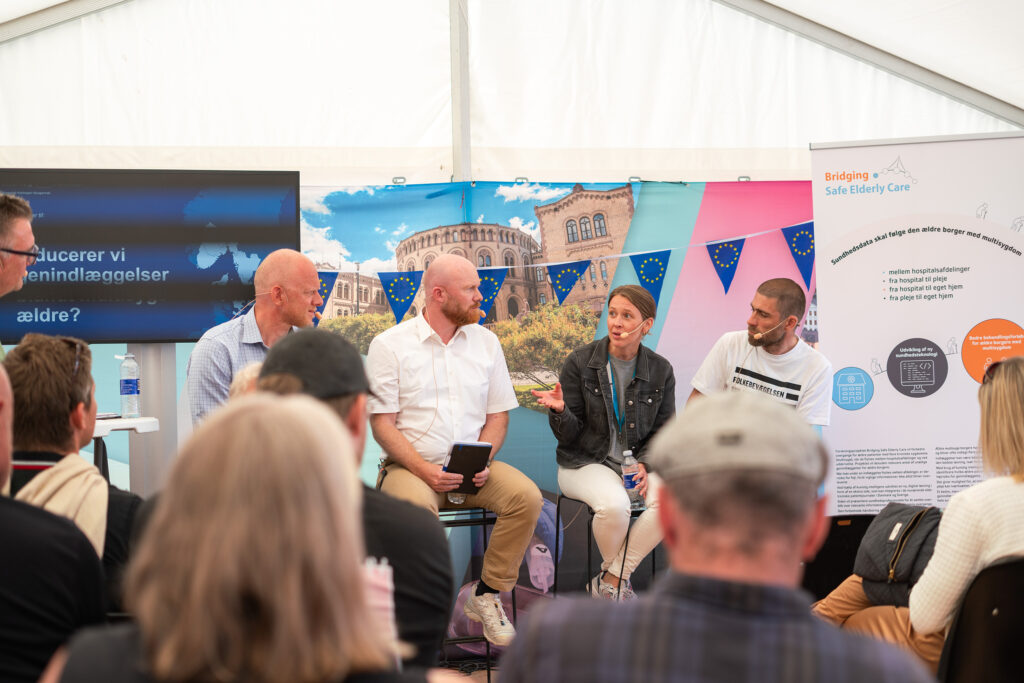Nurse and PhD student Nanna Selmer Winther participated in the well attended debate “How do we reduce readmissions among elderly patients with multiple diseases?” at Folkemødet on Bornholm in connection with the presentation of the research project Bridging Safe Elderly Care.
The fact is that one in four elders with multimorbidity is readmitted within 30 days. This costs both quality of life and resources – and we know that many readmissions can be prevented. But how?
Among the other debaters: Deputy Medical Director at Zealand University Hospital Morten Ziebell, Business Development Manager Jesper Eriksen (also a partner in the project), and Director of Lolland Municipality, Thomas de Richelieu – there was agreement on one thing: We need to understand the underlying risk factors better – and act on them.
👥 In the research project, Nanna Selmer Winther interviewed over 300 patients and pointed out that social and demographic factors play a much greater role than we might think. Thomas de Richelieu noted that a complex picture often emerges, which is not always about health, and is looking forward to having tools to prioritise where to intervene – so that the right systems can be built.
Morten Ziebell challenged the status quo and asked whether the current length of hospital stays may have become too short – and reminded us of the holistic perspective on the patient.
In the research project, an AI-based data model is being developed to identify which older people are at risk of readmission and why, so that prevention can be put in place in time – for example, at home or in municipal care. The large amounts of collected data will form the basis of the AI model.
Jesper Eriksen was able to reassure a citizen that no one will look at an individual’s personal data, but only at data sets 💬 “Data is a way of reducing complexity.”
Morten Ziebell pointed out that prevention at home will be a central priority in the health reform and that we need to find good solutions together to prevent unnecessary hospital admissions.
👉 Conclusion: To reduce readmissions, we need to understand and share knowledge about risk factors. AI-based tools can help – but the solutions must be developed collectively. Bridging Safe Elderly Care is an important step on the way.

